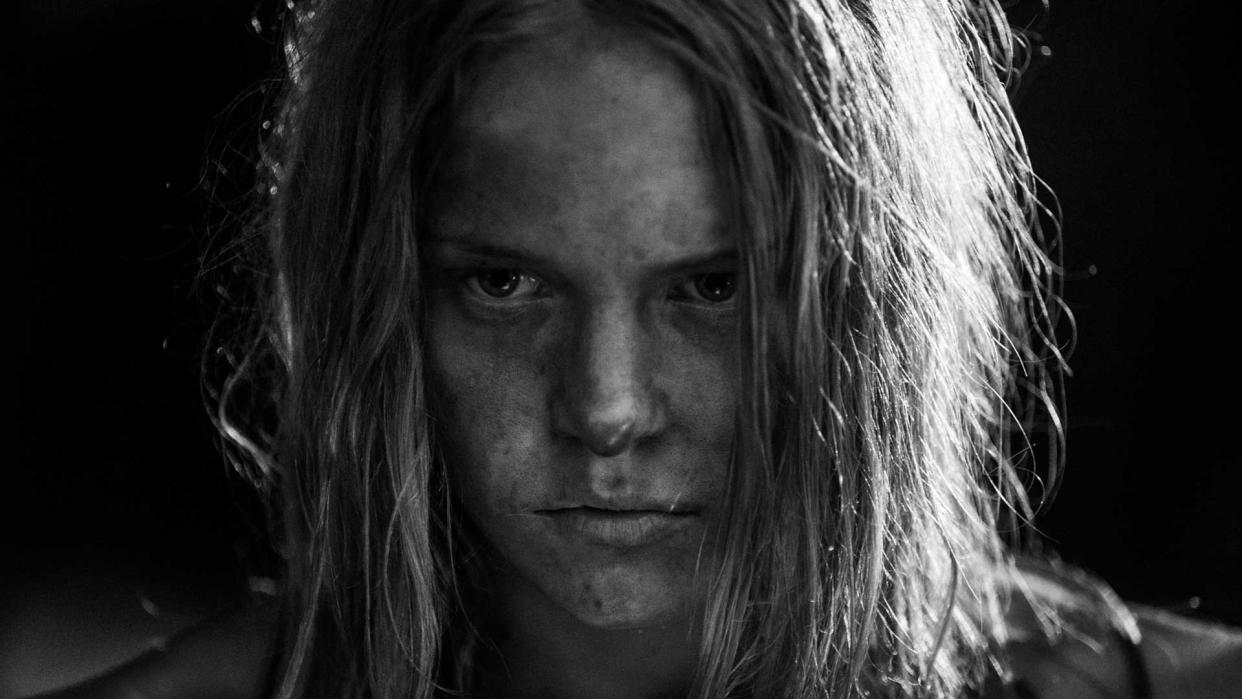Film Review: ‘November’

It’s a folk tale too odd to begin with “once upon a time,” and far too peculiar to end with “happily ever after.” And yet in this surpassingly strange film in which kratts — enchanted scarecrowish bundles of sticks and garden tools — stalk the Estonian landscape doing the nefarious bidding of their peasant masters, the most striking images may in fact be of faces.
Rainer Sarnet’s deliciously, anciently offbeat “November,” which deservedly won the cinematography prize in Tribeca and went on to collect the best Estonian film prize at the Black Nights Film Festival in Tallinn, is as much in love with the humdrum detail of its folkloric setting as it is with its witchiness. The extraordinary physicality of the largely non-professional supporting cast, wearing the weary, suspicious expressions of Klondike miners, with the grime of Time itself collected in the grooves of their brows, does much of the storytelling. It’s having the ordinary in such close proximity to the outlandish that makes “November” so uncanny. And it’s rooting the bizarre behaviors of its characters in such understandable motivations (usually greed) that makes it so unexpectedly funny and scabrously relatable.
In DP Mart Taniel’s black-and-white imagery, which ranges from sootiest darkness to a translucently overexposed brightness, set to a soundtrack in which animal screeches combine with the occasional unearthly twanging of an electric guitar, the story that gradually reveals itself is actually simple and grave: a love triangle whose corners never quite meet. Based on a well-known Estonian bestseller by Andrus Kivirähk, it tells of a hardscrabble rural village in which lives a young girl, Liina (Rea Lest), who is quietly in love with local boy Hans (Jörgen Liik). But one day Hans claps eyes on the aristocratic daughter (Jette Loona Hermanis) of the local Baron and is instantly smitten.
Hans will do whatever he can to make the Baroness fall in love with him, including visiting the Devil, who hangs out in the woods nearby and steals men’s souls in return for animating their crudely fashioned kratts. These freakish abominations can speak “because of the mouth you gave me, master,” but it’s usually just to demand more work. When they’re not being sent on some errand or other, they can turn ornery, even potentially violent towards their owners. But the villagers are a lazy, venal bunch, forever thieving from each other and the baron in his big house, so there’s usually work for the kratts to do, right down to stealing surprised-looking cows and helicoptering them away from their rightful owners.
Liina, who has been promised in marriage to a grunting old beast of a neighbor by her miserly father — and, oh yes, who is also maybe a kind of a werewolf — will do anything to get Hans to marry her, including visiting a witch who gives her the means to kill the young baroness. But Liina’s inherent goodness stays her hand, just as Hans’ kratt (whom he has fashioned out of snow that carries in it all the wisdom of the waters it has traveled through to get here) cautions him that sometimes loving is an end in itself, whether or not one possesses its object.
Here everything can be deceived, even the Plague itself which shows up in the form of a shapeshifting young woman, but is stymied when then the villagers are told put their trousers on their heads, so that it “will think you’ve two arses” and won’t dare come near. And yet all this surprisingly effective superstition, and a bawdy, blasphemous melding of pagan ritual, Christian tradition and spit-and-sawdust gumption, is worthless against love — the only thing that can’t be stolen, grifted, or cheated.
The Gothic cinema tradition usually revolves around the mansion or the castle, while the villagers nearby are seldom more than background details. But “November” shifts the focus downward to a peasantry rife with bitterness at the unfairness of their lot. In this magnificently well imagined, immersive reality, magic is as mundane as muck, the rustic is not necessarily righteous, and folklore is shorn of any sentimentality.
Related stories
Gilda Radner Documentary 'Love, Gilda' to Open Tribeca Film Festival
Tribeca Winner 'Keep the Change' Bought by Kino Lorber (EXCLUSIVE)
Tallinn Film Review: 'Secret Ingredient'
Subscribe to Variety Newsletters and Email Alerts!

